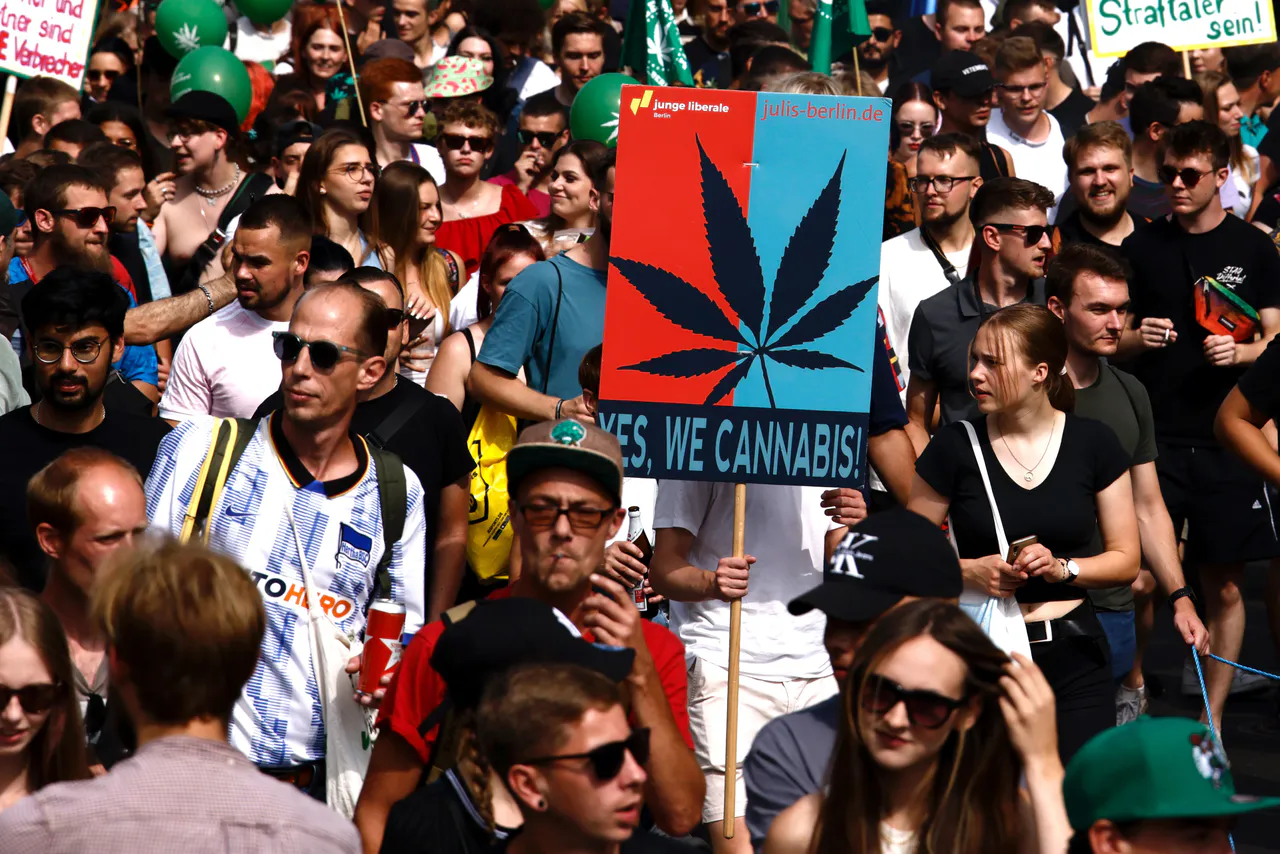Germany has taken a significant step by legalizing recreational cannabis, becoming the largest EU country to do so, despite facing strong opposition from political factions and medical organizations.
Under the newly enacted law, adults aged 18 and above can possess up to 25 grams of dried cannabis and grow up to three marijuana plants at home. This move positions Germany alongside Malta and Luxembourg, which legalized recreational cannabis use in 2021 and 2023, respectively, thus having some of the most liberal cannabis laws in Europe.
The legalization was met with celebration in Berlin, where crowds gathered near the iconic Brandenburg Gate, with many participants openly enjoying cannabis, heralding what they termed as “a bit of extra freedom.”
As part of the ongoing legal reforms, starting from July 1, cannabis will be available through “cannabis clubs,” regulated associations permitted to have up to 500 members each, distributing up to 50 grams of cannabis per person per month.
Despite the enthusiasm surrounding the legalization, initial plans to sell cannabis through licensed shops were abandoned due to opposition from the EU. However, a second law is in progress to trial the sale of cannabis in shops in selected regions.
The German government argues that legalization will help curb the burgeoning black market for cannabis. However, health groups express concerns regarding potential increases in cannabis use among young people, who face heightened health risks.
Experts caution that cannabis use among young individuals can impact the development of the central nervous system, potentially leading to an elevated risk of psychosis and schizophrenia.
Criticism of the law extends to law enforcement agencies, which fear challenges in enforcement, as well as concerns regarding retroactively granting amnesty for cannabis-related offenses, posing logistical hurdles for the legal system.
Opposition parties, such as the conservative bloc led by Friedrich Merz, vow to repeal the law if elected into government in 2025. Conversely, proponents, including Finance Minister Christian Lindner from the liberal FDP, defend legalization as a responsible measure to counter the black market.
Despite the controversies and differing viewpoints, Germany’s legalization of recreational cannabis marks a significant milestone in the ongoing debate surrounding drug policy and public health.



